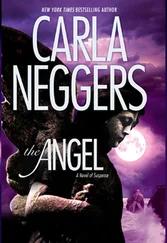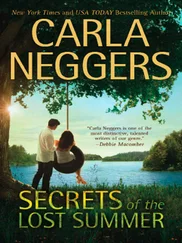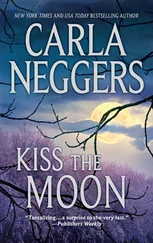The real reason she was going to Wyoming, she knew, was Sebastian Redwing and the promise she’d made to Colin.
But that was ridiculous, too. An overreaction—if not pure stupidity—on her part to a few weird incidents.
Lucy sank back against her seat, feeling something under her—probably a pen or a lipstick, or one of J.T.’s toys. She fished it out.
She gasped at the warm, solid length of metal in her hand.
A bullet.
She resisted a sudden urge to fling it out the window. What if it went off? She shuddered, staring at her palm. It wasn’t an empty shell. It was a live round. Big, weighty.
Someone had left a damn bullet on her car seat.
The car windows were open. She and Madison hadn’t locked up. Anyone could have walked by, dropped the bullet through the passenger window and kept on going.
Lucy’s hand shook. Not again. Damn it, not again. She forced herself to take slow, controlled breaths. She knew adventure travel—canoeing, kayaking, hiking, basic first aid. She could plan every detail of inventive, multifaceted, multi-sport trips and do just fine.
She didn’t know bullets.
She didn’t want to know bullets.
Madison trotted out of the country store with several other teenagers, swinging her car keys as if she’d been driving for years. The girls were laughing and chatting, and even as Lucy slid the bullet into her shorts pocket, she thought, Yes, Madison, you do have friends. Since school had let out, her daughter had been making a point of being miserable, if only to press her case for Washington.
She jumped into the driver’s seat. “Saddle up, Mom. We’re ready to roll.”
Lucy didn’t mention the bullet. This wasn’t her children’s problem, it was hers. She preferred to cling to the belief that she wasn’t the victim of deliberate harassment. The incidents she’d endured over the past week were random, innocent, meaningless. They weren’t related. They weren’t a campaign of intimidation against her.
The first had occurred on Sunday evening, when she’d found a dining room window open, the curtains billowing in the summer breeze. It was a window she never opened. Madison and J.T. wouldn’t bother. But Lucy had dismissed the incident, until the next night when the phone rang just before dawn, the caller breathing at her groggy hello, then hanging up. Too weird, she’d thought.
Then on Tuesday, while checking the mailbox at the end of her driveway, she’d had the distinct sense she was being watched. Something had alerted her—the snapping of a twig, the crunching of gravel. It wasn’t, she was certain, her imagination.
The next morning, the feeling was there again, while she was sweeping the back steps, and ten minutes later, she’d found one of her tomato plants sitting on the front porch. It had been ripped out of the ground.
Now, today, the bullet on her car seat.
Maybe she was in denial, but she didn’t believe there was enough to take to the police. Individually, each incident could have an innocent explanation—her kids, their friends, her staff, stress. How could she prove someone was watching her? She’d sound like a nut.
And if she went to the police, Lucy knew what would happen. They would notify Washington. Washington would feel compelled to come to Vermont and investigate. And so much for her low-profile life.
It wasn’t that no one in town knew her father-in-law was Jack Swift, a powerful United States senator. Everyone knew. But she’d never made it an issue.
She was his only son’s widow; Madison and J.T. were his only grandchildren. Jack would take charge. He would insist the Capitol Police conduct a thorough investigation and make sure his family wasn’t drawing fire because of him.
Lucy couldn’t imagine why anyone going after Jack would slip a bullet onto his widowed daughter-in-law’s car seat. It made no sense. No. She was safe. Her children were safe. This was just…bizarre.
“Mom?”
Madison had started the engine and backed out onto the main road without Lucy noticing, much less providing comment and instruction. “You’re doing great. My mind’s wandering, that’s all.”
“What’s wrong? Is it my driving?”
“No, of course not.”
“Because I can get someone else to drive with me. It doesn’t have to be you, if I make you nervous.”
“You don’t make me nervous. I’m fine. Just keep your eyes on the road.”
“I am.”
Madison had a death grip on the steering wheel. Lucy realized she’d scared her daughter, who noticed everything. “Madison. You’re driving. You can’t allow yourself to get distracted.”
“I know. It’s you.”
It was her. Lucy took a breath. She could feel the weight of the bullet in her pocket. What if it had worked its way under the seat and J.T. had found it? She shut off the stream of what-if scenarios. She’d learned from hard experience to stick with what was, which was difficult enough to absorb.
“Never mind me and drive.”
Madison huffed, annoyed now. With her blue eyes and coppery hair, her introspective temperament and unbridled ambition, she was so like her father. Even Madison’s two-week-old driving mannerisms were pure Colin Swift.
He’d died, suddenly and unexpectedly at age thirty-six, of a cardiac arrhythmia while playing tennis with his father, his life and a brilliant career at the U.S. State Department cut short. Madison had been twelve, J.T. nine. Not easy ages to lose a father. Six months later, Lucy had plucked her children away from the only life they knew—school, friends, family, “civilization,” as Madison would say. But if they hadn’t moved—if Lucy hadn’t done something dramatic to get her bearings—they’d have been in danger of losing their mother, too, and that simply wasn’t an option.
There’d been nothing from Sebastian Redwing when Colin died. Not a flower, not a card, not a word. Then, two months later, his lawyer showed up on Lucy’s doorstep offering her the deed to his grandmother’s Vermont farmhouse. Daisy had died the previous year, and Sebastian had no use for it.
Lucy threw the lawyer out. If Redwing couldn’t even offer his condolences, she didn’t want his damn house.
A month later, the lawyer was back. This time, she could have the house at a below-market price. She would be doing Sebastian a favor. His grandmother had wanted someone in the family to have the house. He had no brothers or sisters. His parents were dead. Lucy was the best he could do.
She’d accepted. She still didn’t know why. Sebastian had once saved her husband’s life. Why not hers?
In truth, she couldn’t pinpoint one clear, overriding reason. Perhaps the lure of Vermont and starting her own adventure travel business, the stifling fog of grief, her fears about raising her children on her own.
Maybe, she thought, it boiled down to the promise she’d made Colin shortly before he died. Neither had known until that day on the tennis court that he had a heart condition that could kill him. The promise had seemed like one of those “if we’re trapped on a desert island” scenarios, not something she would ever need to act on.
Yet Colin had been so sincere, so serious. “If anything happens to me, you can trust Sebastian. He’s the best, Lucy. He saved my life. He saved my father’s life. Promise me you’ll go to him if you ever need help.”
She’d promised, and now here she was in Vermont. She hadn’t heard from Redwing, much less seen him, since she’d bought his grandmother’s house. The transaction had been handled entirely through his attorney. Lucy had hoped never again to be so desperate that she’d feel compelled to remember her promise to Colin. She was smart, she was capable, and she was used to being on her own.
So why was she packing herself and her kids off to Wyoming—Sebastian Redwing country—in the morning?
Читать дальше












